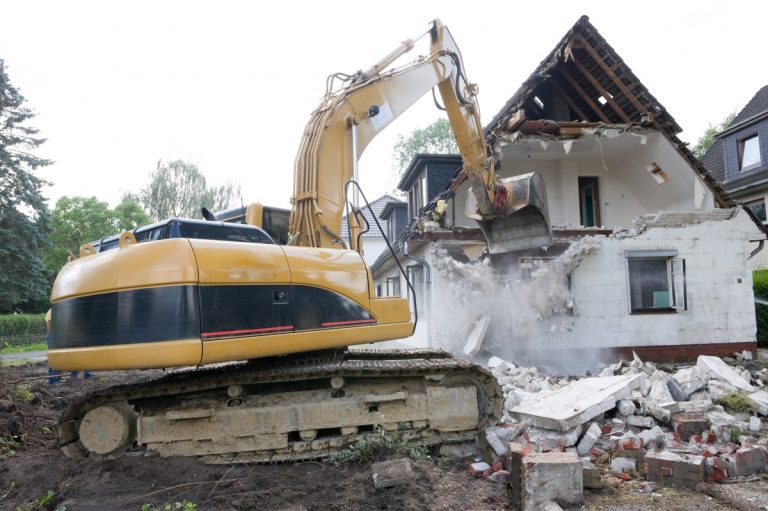Not everyone will have to face the decision to demolish their home or keep it that way. While there are some benefits to keeping a house the way it is, there’s another set of advantages to demotion. Deciding to demolish a property can be challenging, but sometimes it’s necessary to ensure safety, financial feasibility, and a fresh start.
In this article, we’ll explore key factors to consider, from assessing structural integrity and health concerns to the financial implications and the role of hydro excavation in the demolition process. So, let’s dive in and discover when it’s time to let go and start anew!
Assessing Structural Integrity
One of the primary considerations when contemplating house demolition is assessing the structural integrity of the property. Look out for signs of severe damage, such as extensive cracks, sagging floors, or compromised foundations. Engaging professional demolition contractors can provide a comprehensive evaluation, determining if the cost of repairs outweighs the benefits of demolition. Here, you can make an informed decision that prioritizes safety, ensuring you’re not putting occupants or neighbouring properties at risk.
Health and Safety Concerns
Your safety and that of others should always be paramount. Recognizing the presence of hazardous materials like asbestos or lead is crucial. Dilapidated structures can pose risks, such as weakened supports or potential collapses. Prioritizing health and safety is essential to protect yourself and those around you. In cases where repairs are extensive or the presence of hazardous materials is confirmed, demolition may be the safest and most practical option.
Financial Considerations
Assessing the financial aspects is another crucial step in determining whether demolition is the right choice. Calculate the overall cost of repairs and maintenance, considering the potential return on investment for new construction. Explore insurance coverage options for demolition, as they might alleviate some financial burden. Weighing the costs versus the benefits of starting anew will help you make a financially sound decision.
Repurposing vs. Demolition
Repurposing an existing structure may seem appealing, especially if there is sentimental value attached to the property. But it’s important to assess the feasibility of repurposing based on various factors. Consider the structural limitations of the existing structure and whether it can be efficiently renovated to meet your needs. Evaluate the adaptability of the current layout and design to accommodate modern living requirements. Sometimes, the cost and effort involved in repurposing outweigh the advantages it offers.
It’s also important to compare the long-term benefits of demolition and new construction. Starting from scratch provides the opportunity to design a home that aligns with your lifestyle, preferences, and current building standards. It also allows for incorporating energy-efficient features, smart home technology, and other modern amenities that can enhance your quality of life. On top of that, new construction often requires fewer repairs and maintenance, reducing the long-term financial burden compared to an older repurposed structure.
Environmental Sustainability
When demolishing, the impact on the environment is a growing concern. Traditional demolition methods can generate a significant amount of waste and cause unnecessary damage to the surrounding ecosystem. Both homeowners and contractors will have to find a way to break even in terms of efficiency and lesser environmental impact. And one answer they came up with is hydro excavation.
This method, utilizing pressurized water and vacuum systems, enables precise and controlled excavation. Hydro excavation is particularly relevant and efficient in site preparation, ensuring the removal of debris, and hazardous materials, and efficient clearing of the area. Its environmentally friendly nature, reduced risk of damage to underground utilities, and increased safety make it an excellent choice for demolition projects.
Emotional Attachment and Sentimental Value
Parting ways with a property that holds emotional attachment and sentimental value can be challenging. Houses often serve as vessels for cherished memories, and letting go can evoke mixed feelings. It’s important to acknowledge these emotions and balance sentimentality with practicality. While demolishing a house might feel like erasing the past, it’s important to remember that memories are not tied to physical structures but to the experiences and connections we create within them.
During this process, seek support and guidance from professionals or loved ones who can provide an objective perspective. Their insights can help you weigh the practical considerations against sentimental attachments. They can provide reassurance that your decision to demolish and start anew is not an act of erasure but a step toward growth and renewal. Remember that your emotional well-being and the potential for a brighter future are equally important factors to consider alongside practical aspects when deciding to proceed with demolition.
Community Impact
Considering the impact on the local neighbourhood and community is also crucial. Obtain necessary permits and ensure compliance with regulations to maintain a positive relationship with neighbours and local authorities. Communication plays a vital role in keeping everyone informed and addressing concerns. Involve the community in the process and demonstrate responsible demolition practices so you contribute to fostering a harmonious and supportive environment.
Moving Forward: Starting Anew
With the demolition complete, it’s time to embrace the opportunity for a fresh start. Clear the site, prepare for new construction, and design a home or property plan that aligns with your vision and requirements. The blank canvas provides the freedom to create a space that reflects your style, caters to your needs, and embraces the latest innovations in construction and design. Embrace this exciting chapter and look forward to the possibilities that lie ahead!
Conclusion
Recognizing when it’s time to call it quits and proceed with house demolition is a significant decision. By carefully assessing structural integrity, considering health and safety concerns, evaluating financial aspects, and exploring the role of different demolition methods, you can make an informed choice. Balancing emotional attachment with practicality, addressing community impact, and effectively planning the demolition process are key steps in ensuring a successful transition to a fresh start. So, seize the opportunity, bid farewell to the past, and welcome the exciting future that awaits you!

